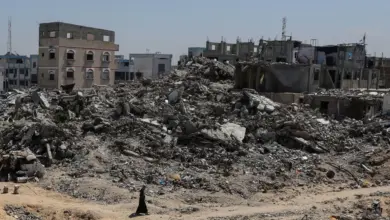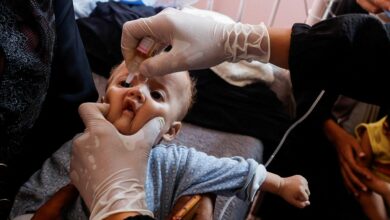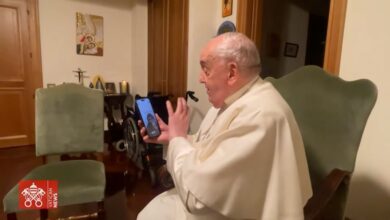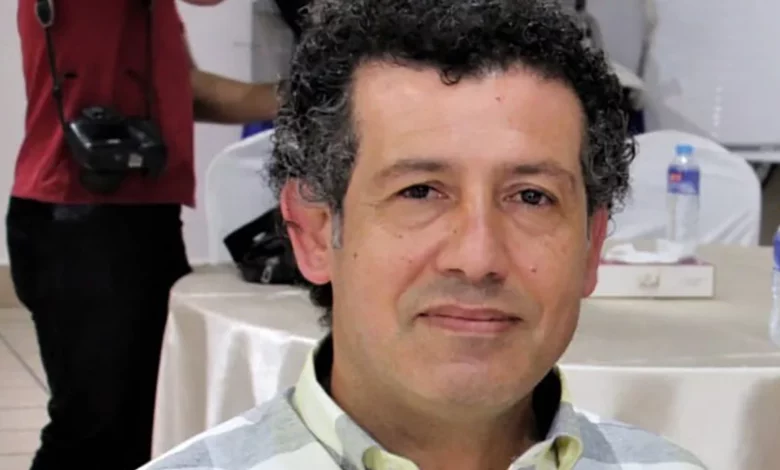
A prominent surgeon in Gaza has died in an Israeli prison after being held for more than four months, according to Palestinian prisoners’ groups, which decried his death as part of a “systematic targeting” of health care workers.
Dr. Adnan Al-Bursh, head of orthopedics at Al-Shifa Hospital in Gaza City, was declared dead by Israeli prison authorities at Ofer prison in the occupied West Bank on April 19, according to a joint statement Thursday from the Palestinian Prisoners’ Society and the Commission of Detainees’ Affairs.
Al-Bursh was arrested along with 10 other medical workers in December during the Israeli military ground invasion of the Jabalya refugee camp, CNN previously reported. He was taken away while treating patients in Al-Awda Hospital, according to the statement.
His body has not yet been released by Israeli authorities.
The prisoner associations blamed Israel for his death, saying it was part of a “systematic targeting process against physicians and the health care system in Gaza,” according to the statement.
CNN has reached out to the Israel Defense Forces (IDF) for comment.
Palestinian doctor ‘loved life’
The death of the 50-year-old was “heartbreaking news for everyone, for his family, the medical staff at Al-Shifa Hospital, and for Dr. Adnan’s patients,” the director of Al-Shifa Hospital, Dr. Marwan Abu Saada, told CNN.
“This is the last thing we expected, and it’s difficult for the human soul to bear this news,” he said. “Dr. Adnan loved life, was cheerful, and was loved by everyone.”
Al-Bursh’s nephew Mohammad Al-Bursh told CNN in a phone interview that he found out about the death of his uncle at around 1 p.m. on Thursday from the Palestinian Prisoners’ Society.
“I didn’t know how to tell his wife and my father. News like this is hard to keep in… We are shocked, more than anyone can imagine. We are in pain,” he said.
The youngest of nine siblings, Dr. Al-Bursh wasn’t just a doctor, he was also a sports adviser for the Palestinian national soccer team, his nephew said.
He told CNN his uncle worked nonstop during the height of the war in Gaza, only taking an hour in the morning to jog and play sports by the beach.
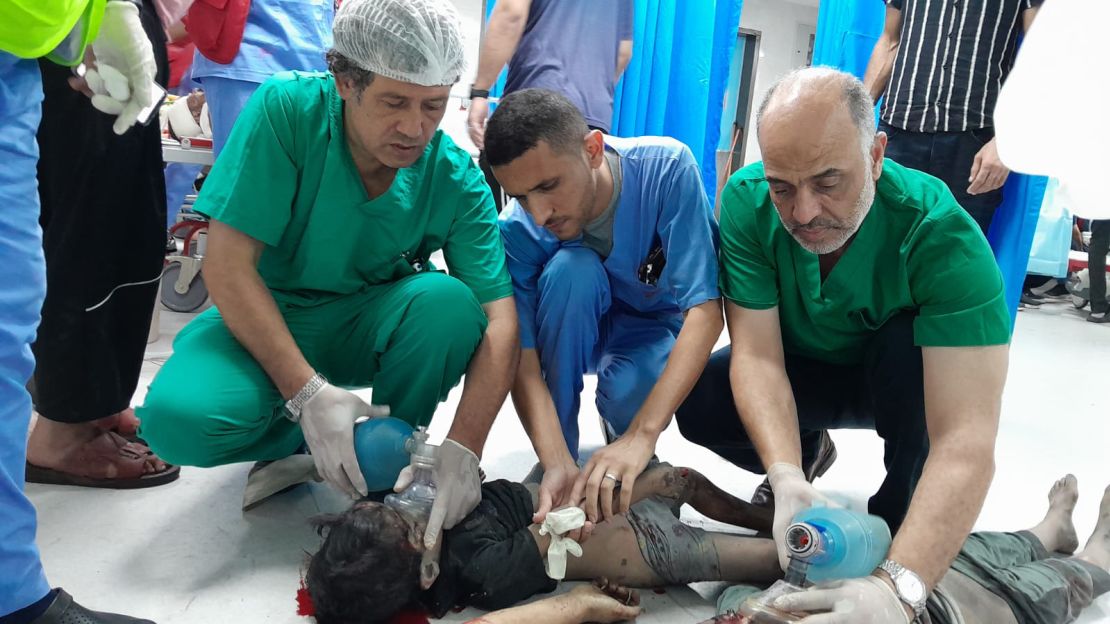
“From October 10, 2023, he spent every moment he had at Al-Shifa hospital. He didn’t even see his wife until probably two weeks later,” Mohammed said.
During the first Israeli incursion into Al-Shifa hospital, Mohammad told CNN Israeli soldiers told the medical staff, including Dr. Al-Bursh that they could either leave the hospital and go south, or face arrest.
He followed orders and went south temporarily, eventually returning to the north of Gaza when he felt the roads were safe, Mohammad said. Dr. Al-Bursh ended up moving from one hospital in Gaza to another, each always falling victim to Israeli incursions.
According to Mohammad, Dr. Al-Bursh had the option to flee and take refuge in shelters in Jabalya but was determined to keep working. Until he was detained by Israeli soldiers on December 14 last year.
Mohammad said he tried to get information about his uncle’s arrest from authorities and lawyers but was kept in the dark.
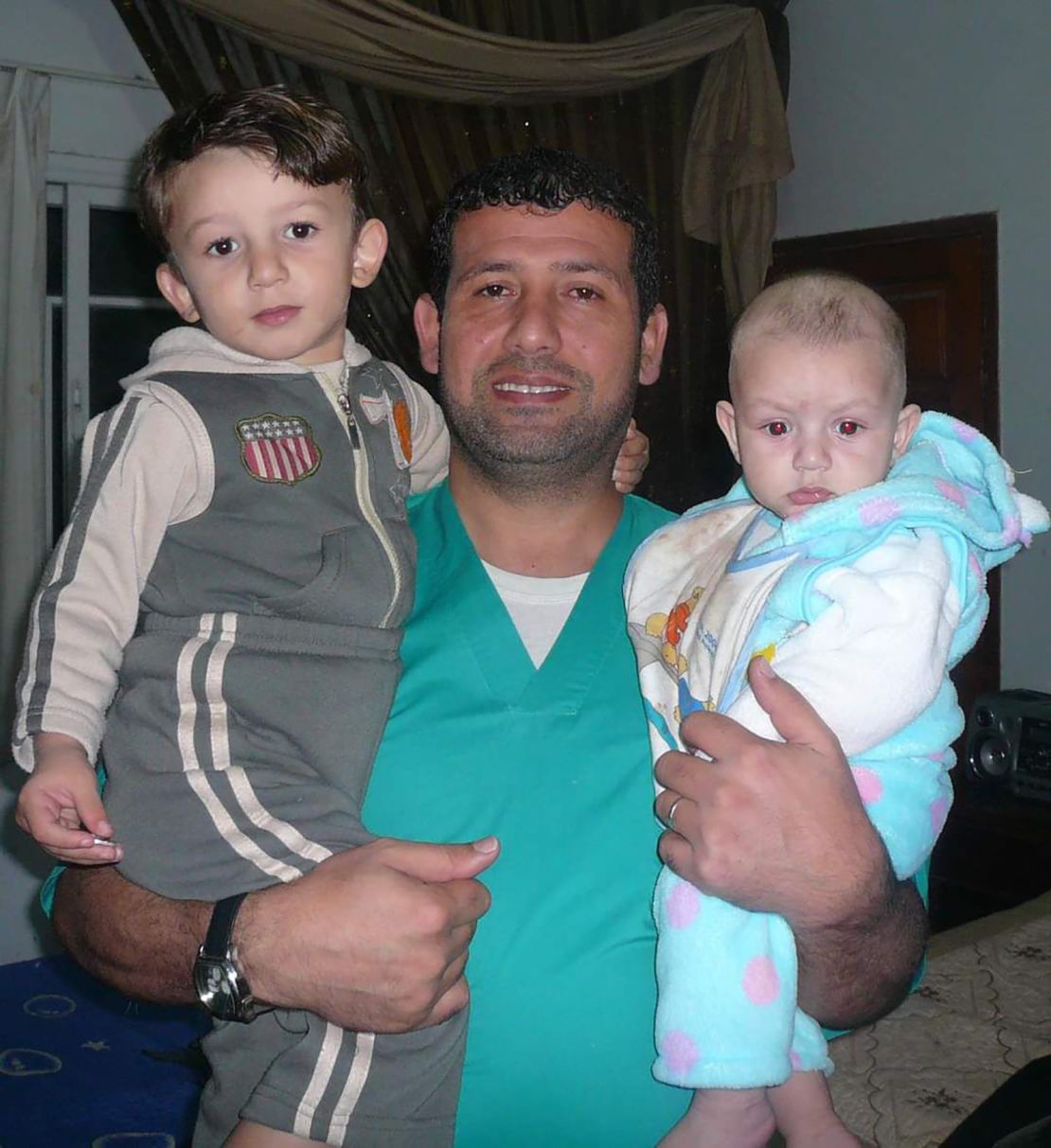
Allegations of physical and psychological abuse
Just like Mohammad, Abu Saada said he had earlier asked Israeli authorities about Al-Bursh’s detention but “didn’t receive any news.” Abu Saada was told that one of Al-Bursh’s fellow prisoners – who had since been released – said the surgeon had been tortured and was killed.
CNN cannot independently verify the claim that Al-Bursh was tortured in detention. However, testimony from dozens of Palestinians who have been released by Israel in past months has alleged the widespread use of physical and psychological abuse of those detained by Israel during the war in Gaza.
The IDF has previously said it treats all detainees in accordance with international law.
An unpublished report compiled by the United Nations which CNN has obtained describes beatings, sleep deprivation, sexual abuse and threats of sexual violence against both men and women detained by the Israeli military.
Earlier on Thursday, Israel released dozens of Gaza detainees via the Kerem Shalom crossing in southern Israel.
The release included the return of the body of Ismail Khadr, a Palestinian man from Gaza, who had also recently died in Israeli custody, the prisoner associations said in the joint statement. The total number of Palestinian detainees who have died in Israeli custody since October 7 rose to 18, the statement said.
Israel launched its military offensive in Gaza after the Hamas-led October 7 attacks when militants killed more than 1,200 people in southern Israel and took more than 200 people hostage. Israel’s military response has since sparked a humanitarian catastrophe in Gaza that has inflamed opinion globally.
The seven-month bombardment of Gaza has killed more than 34,600 people, according to the Gaza health ministry. Half of the 2.2 million people in Gaza are on the brink of starvation and man-made famine is imminent, according to a scale used by United Nations agencies. Concerns are also heightened over an anticipated Israeli military operation in southern Gaza’s Rafah, prompting renewed calls for a ceasefire.
There has been fierce criticism of Israel’s actions in and around hospitals in Gaza, as medical groups and NGOs warn the health system in the territory is on the brink of collapse.
Israel has defended its incursions at medical facilities in Gaza, alleging that Hamas fighters used hospitals to run military activities through a network of underground tunnels. Hamas and medical staff at various hospitals across Gaza deny the allegations, and Israel has been under significant international pressure to prove its claims.
Dr. Al-Bursh is survived by his five children, the youngest aged three, who hadn’t seen their father in nearly five months.
“I walked into the mourning house yesterday and saw two of his kids jumping around expecting to see their father. They didn’t know that he was martyred,” his nephew told CNN, struggling to hold back tears.
The last post Dr. Al-Bursh posted on X was a cartoon image of him wearing his scrubs in the midst of Gaza’s destruction, with a note in Arabic that read, “We will die standing and we will not kneel… All that remains in the valley are its stones, and we are its stones.”

